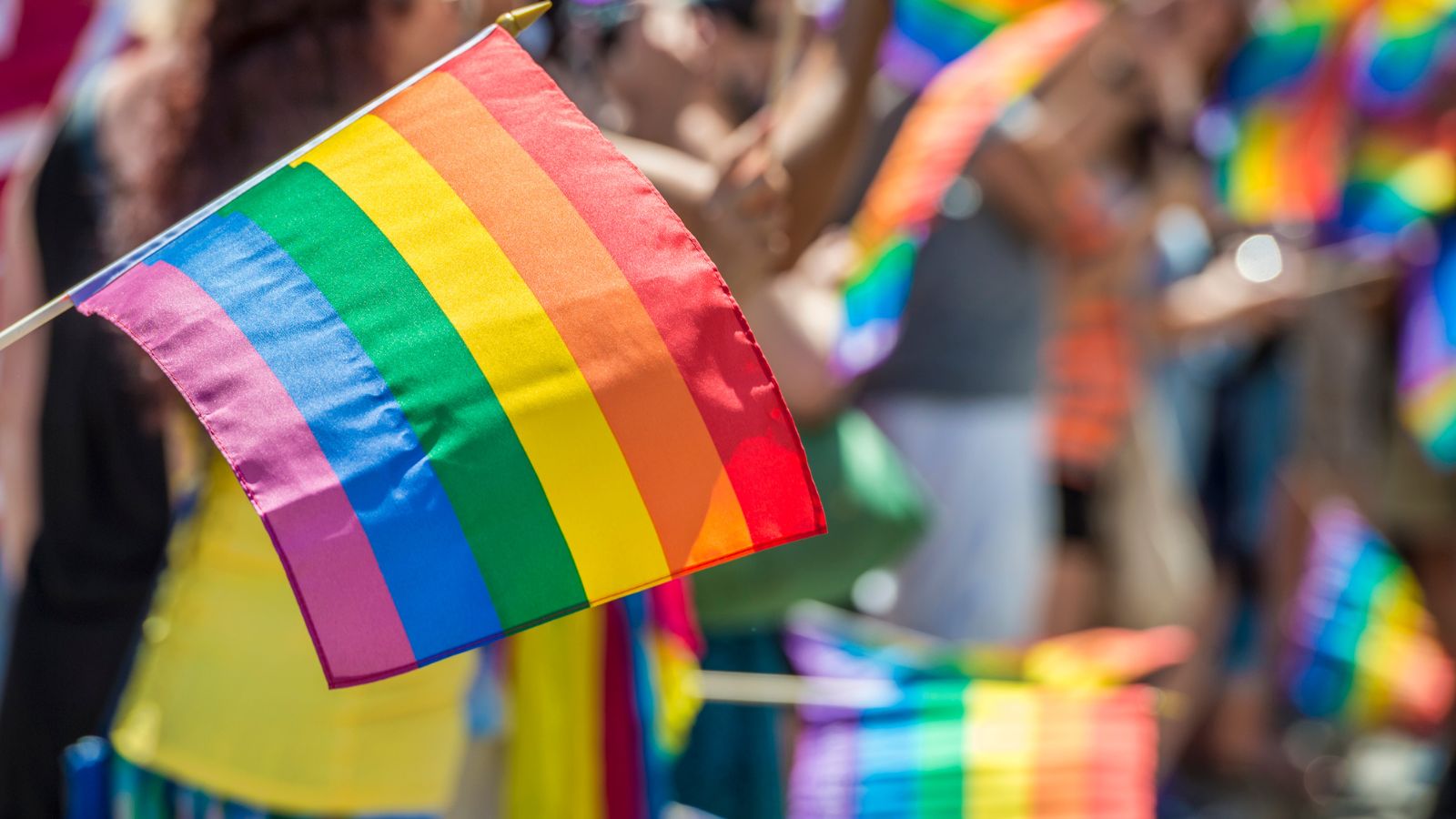The Baby Boomer generation refers to individuals born between 1946 and 1964. This period saw a significant shift in societal values and cultural trends, shaping the way we live and interact today. Here are 20 trends that defined the Baby Boomer era.
1. Civil Rights Movement

The Civil Rights Movement was a crucial movement during the Baby Boomer era that fought for equal rights and treatment for Black Americans. The movement was characterized by peaceful protests, boycotts, and sit-ins that were met with violence and resistance from authorities. The Civil Rights Movement inspired social change and led to the passage of the Civil Rights Act of 1964.
Read More:These 20 Trends From Generations Passed Are Making a Comeback! Are You Ready?
2. Sexual Revolution

The Sexual Revolution was a period of significant cultural change that challenged traditional attitudes towards sex, gender, and sexuality. The Baby Boomer era saw an increase in premarital sex, contraception use, and the acceptance of homosexuality. The sexual revolution paved the way for greater sexual freedom and awareness of sexual health.
3. Counterculture Movement

The Counterculture Movement was a youth movement that rejected mainstream values and embraced unconventional lifestyles. The movement was characterized by a rejection of authority, experimentation with drugs, and a focus on personal freedom and self-expression. The counterculture movement had a significant impact on popular culture, influencing music, fashion, and art.
Also May Like:Revealed: Surprising Trends in High School Students’ Political Leanings
4. Vietnam War

The Vietnam War was a controversial conflict that defined the Baby Boomer era. The war was characterized by massive protests and demonstrations, with many Baby Boomers refusing to fight in the war or support the government’s actions. The Vietnam War sparked a significant anti-war movement that helped to end the conflict.
5. Rock and Roll Music

Rock and Roll music was a genre that emerged during the Baby Boomer era and had a significant impact on popular culture. Rock and Roll music was characterized by its fast-paced beat, electric guitar riffs, and rebellious lyrics. The genre was associated with the counterculture movement and helped to shape the attitudes and values of the Baby Boomer generation.
6. Feminism

The Baby Boomer era saw the rise of the feminist movement, which fought for equal rights and opportunities for women. The movement challenged traditional gender roles and the patriarchal society, leading to significant changes in the workplace and in legislation. Feminism empowered women and encouraged them to take an active role in society.
Related:Top 5 Trends Shaping the Future of Online Gambling and Investment Opportunities
7. Space Exploration

With the United States landing on the moon in 1969, the Baby Boomer era saw significant advances in space exploration. The space race between the US and the Soviet Union captivated the world and inspired a sense of wonder and possibility. The advancements in space exploration led to new technologies and a greater understanding of the universe.
8. Cold War

Cold War tensions between the United States and the Soviet Union defined the Baby Boomer era. The Cold War was characterized by the arms race, proxy wars, and the fear of nuclear war. The threat of nuclear annihilation loomed large over the Baby Boomer generation, shaping their attitudes towards international relations and peace.
9. Hippie Movement

The Hippie Movement was a subculture that emerged during the Baby Boomer era and rejected mainstream values. Hippies were characterized by their long hair, colorful clothing, and use of drugs. The Hippie Movement embraced peace, love, and nonviolence, promoting a utopian vision of society.
10. Television

Television became a ubiquitous medium during the Baby Boomer era, transforming entertainment and news media. Television provided a window into the world and helped to shape popular culture. The medium became a powerful tool for advertising and propaganda, influencing public opinion and shaping societal values.
11. Environmentalism

An environmental movement emerged during the Baby Boomer era with the goal of protecting the environment from human exploitation and destruction. The movement was sparked by concerns over pollution and the impact of industrialization on the environment. Environmentalism led to the creation of laws and regulations to protect the environment and promote sustainability.
12. Youth Culture

A distinctive youth culture emerged during the Baby Boomer era, challenging previous generations’ values and norms. Young people were characterized by their rebellious attitudes, fashion choices, and music preferences. The emergence of youth culture gave young people a sense of identity and community, shaping the way they interacted with the world.
13. Beat Generation

The Beat Generation was a literary movement that emerged during the Baby Boomer era and rejected the mainstream values of the time. The movement was characterized by a rejection of materialism, a focus on spirituality, and a love of jazz music. The Beat Generation inspired a countercultural movement that challenged traditional values and influenced the Baby Boomer generation.
14. Computer Revolution

As computer technology advanced during the Baby Boomer era, personal computers and the internet were developed. The computer revolution transformed the way we communicate, work, and access information, paving the way for the digital age. The computer revolution had a significant impact on the economy and society, leading to new opportunities and challenges.
15. JFK and Camelot

John F. Kennedy was a charismatic political leader who captured the imagination of the Baby Boomer generation. His presidency was characterized by a sense of optimism and possibility, with many Baby Boomers inspired by his vision of a better future. The Kennedy era was often referred to as Camelot, a symbol of hope and idealism.
16. Second Wave of Immigration

There was a significant wave of immigration during the Baby Boomer era, with many people from around the world seeking better opportunities in the United States. The Second Wave of Immigration led to greater diversity and cultural exchange, shaping the way we think about race, ethnicity, and nationality.
17. Summer of Love

The Summer of Love was a cultural event that occurred in 1967 and brought together thousands of young people in San Francisco. The event was characterized by a focus on peace, love, and nonviolence, with music, art, and drugs playing a central role. The Summer of Love became a symbol of the counterculture movement and a moment of unity and expression.
18. New Left

The New Left was a political movement that emerged during the Baby Boomer era and challenged traditional political values. The movement was characterized by a focus on social justice, anti-imperialism, and anti-authoritarianism. The New Left had a significant impact on political discourse and helped to shape the Baby Boomer generation’s attitudes towards politics and society.
19. Anti-Establishment

There was a rejection of authority and establishment during the Baby Boomer era. Many Baby Boomers challenged traditional values and questioned the legitimacy of government institutions. The anti-establishment movement led to greater political activism and a greater sense of individualism and self-expression.
20. Generation Gap

A significant generation gap emerged during the Baby Boomer era, with young people challenging their parents’ and grandparents’ values and beliefs. The generation gap was characterized by a clash of values and attitudes, with older generations often criticizing younger people for their rebellious behavior and rejection of tradition.
Final Thoughts

The Baby Boomer era was a period of significant cultural change and societal transformation. The era was defined by movements that challenged traditional values and norms, leading to greater social awareness and political activism.
Read also:

More from us:

Related:






 Tags:
Tags:










